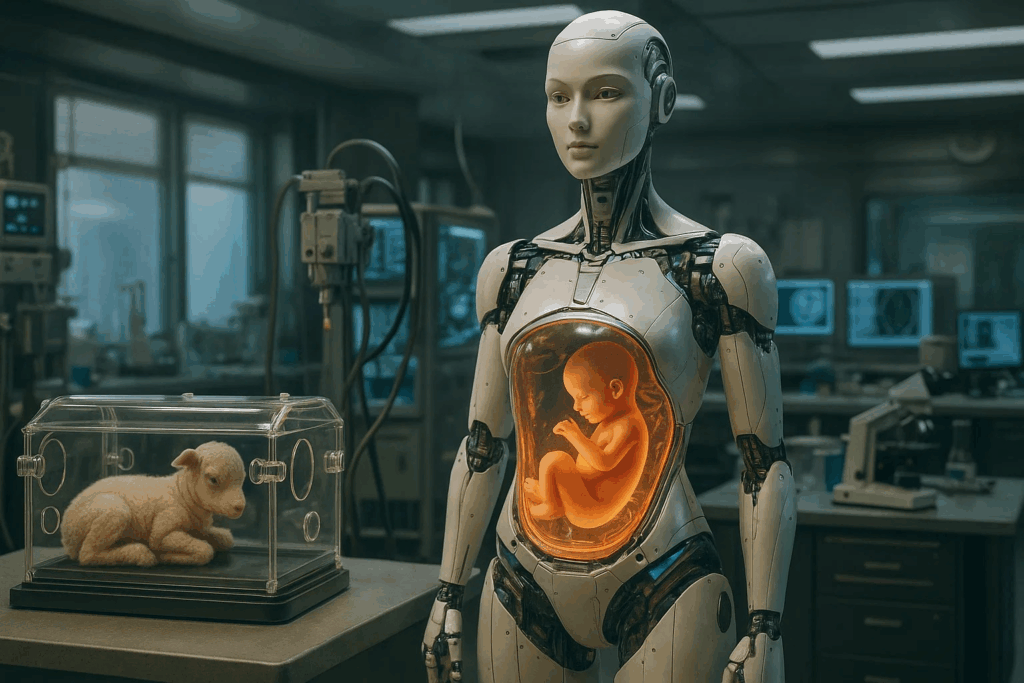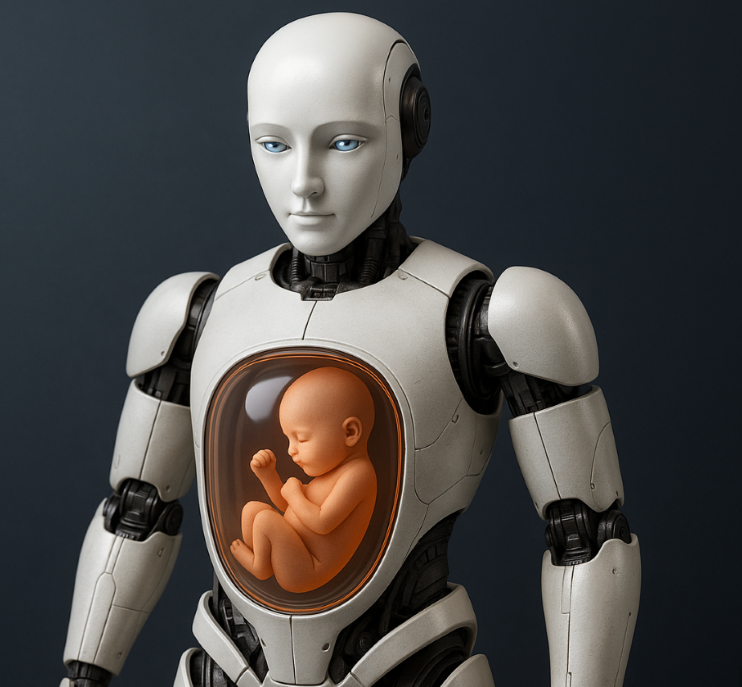? In 2026, China plans to launch the world’s first humanoid robot capable of carrying a child using an artificial womb. The cost of the technology is around $14,000.
The project was announced by the development lead — Dr. Zhang Zifen from Nanyang Technological University in Singapore. According to him, this is not a simple incubator but a fully functional humanoid robot, with artificial organs inside capable of replicating all stages — from conception to the birth of a child.
In promotional images, everything looks like science fiction: glowing capsules, digital screens, sterile laboratories. But behind the shine lies a disturbing reality. A child in a “metal box” is deprived of what nature considered fundamental to life:

- no maternal immunity developed during pregnancy;
- no emotional and spiritual bond formed before birth;
- no experience of a “first home” — the mother’s womb, where the baby hears her heartbeat, breathing rhythm, and voice.
Yet the demand exists. The surrogate motherhood market has shown that people are willing to pay for a child “on demand.” China is taking the next step — a “child turnkey” service. Pay, and wait for the result, as if subscribing to a service. But this is no longer just medicine.

It is the foundation of a new biotech market where children become products with a quality guarantee. Today — $14,000 for an experiment. Tomorrow — mass export of the service worldwide. Given the pace of China’s industry, it is certain that “packages” will appear — basic, premium, with genetic modifications.
The finale of this technological race increasingly resembles a dystopia. Philosophers and cultural scholars already compare the idea to classic dystopias:
- In Huxley’s Brave New World, children were grown in incubators, losing connection with family.
- In The Matrix, humans were turned into batteries for the system.

Today, it’s a “reverse matrix”: machines grow humans, promising comfort and control, but depriving the process itself of humanity.
According to Lancet, infertility in China has reached 18% in recent years. Against this backdrop, authorities actively promote artificial insemination and IVF programs. Supporters of the new technology believe that the “robot womb” could become the next step in helping families who dream of a child but cannot conceive naturally.
❓ The main question — are we ready to live in a world where a child ceases to be a miracle and becomes a commodity, and motherhood turns into an optional menu item?
All content provided on this website (https://wildinwest.com/) -including attachments, links, or referenced materials — is for informative and entertainment purposes only and should not be considered as financial advice. Third-party materials remain the property of their respective owners.


